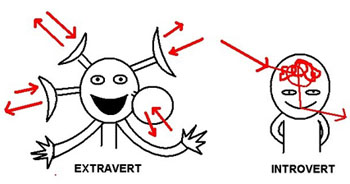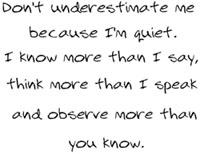Best Careers for Personality Types
February 19, 2016 Leave a comment
This was shared with us by Emily Parker of CollegeMatchUp.net. Today, many job assistance organizations and career counseling centers will factor in a person’s Myers-Briggs personality type when helping them find the ‘perfect’ job. Find your type below and you will see a few suggestions to get you started in finding a role that can best fit your specific disposition. Remember, these are general terms and suggestions presented, as opportunities abound and you’re not necessarily limited to what’s listed! Below the infographic the 16 MBTI types are listed and identified!
ISTJ
These types are good work horses, as they get things done. They see every detail of a plan and aren’t afraid to spend extra hours at the office or take on extra work. To compensate, they seek out jobs with high rewards.
Nickname: The Duty Fulfillers
Prevalence: 8.5%
Perfect careers: Business administrator, police officer, lawyer
ESTJ
These are the defenders of our society. They seek out jobs in which they can feel accomplished and important, as well as helpful.
Nickname: The Guardians
Prevalence: 13%
Perfect careers: Military officer, teacher, sales representative
ISFJ
Like the ESTJs, these types are supportive, but in a much more nurturing, caring way. They feel things intensely and like to help others through difficult situations.
Nickname: The Nurturers
Prevalence: 7%
Perfect careers: Interior decorator, social worker, childcare
ESFJ
Full of empathy, ESFJs seek employment in places where they can connect with their client, student or patient. A high amount of these types are in the nursing and teaching fields.
Nickname: The Caregivers
Prevalence: 12%
Perfect careers: Nurse, counselor, teacher
ISTP
These types look at a problem from absolutely every angle. They like to problem-solve and believe there are multiple ways of finding solutions.
Nickname: The Mechanics
Prevalence: 6%
Perfect careers: Forensic pathologist, computer programmer, engineer
ESTP
ESTPs are the “go-getters” of the personality types. They are high-energy and enjoy friendly competition. They work well in fast-paced environments that are challenging and rewarding.
Nickname: The Doers
Prevalence: 10%
Perfect careers: Marketing, paramedic, athlete
ESFP
ESFPs crave the spotlight. They are very creative and thus stay away from jobs that require strict routines or office work. They like to travel, to design and to express themselves.
Nickname: The Performers
Prevalence: 11%
Perfect careers: Artist, fashion designer, consultant
ISFP
Like ESFPs, ISFPs are creative, though in a much more introverted way. They tend to choose jobs that require imagination and originality, but they’d much rather work in solitude.
Nickname: The Artists
Prevalence: 6%
Perfect careers: Musician, photographer, veterinarian
ENTJ
Born leaders, ENTJs are risk-takers with sharp wits. They can make firm decisions and never feel regret. They are best in charge of large accounts, corporations or business decisions.
Nickname: The Executives
Prevalence: 4%
Perfect careers: Corporate executive, entrepreneur, judge
INTJ
These types are the thinkers. They can solve complex problems and enjoy doing so. Most are in a STEM (science, technology, engineering, math) field.
Nickname: The Scientists
Prevalence: 1.5%
Perfect careers: Scientist, engineer, corporate strategist
ENTP
ENTPs like to solve potential problems, and they are often looking toward the future. They connect well with people and they like to work in teams on complex issues.
Nickname: The Visionaries
Prevalence: 4.5%
Perfect careers: Psychologist, actor, systems analyst
INTP
Like The Scientists, INTPs do well in STEM fields. But they also enjoy scripted public speaking and teaching, as they enjoy sharing what they find with others.
Nickname: The Thinkers
Prevalence: 2.5%
Perfect careers: University professor, mathematician, forensic research
ENFJ
ENFJs enjoy doing volunteer work and helping others. They are also good at organization and do well planning events and parties.
Nickname: The Givers
Prevalence: 4%
Perfect careers: Clergy, events coordinator, writer
INFJ
ESTJs are The Guardians, but INFJs are a bit more prone to choose careers that offer small victories. They don’t want to save the planet, they just want to make the world better one person at a time.
Nickname: The Protectors
Prevalence: 1%
Perfect careers: Chiropractor, early childhood development, dentist
ENFP
These types like to be surrounded by other creative types. They thrive on others’ energies and enjoy being a part of creative, political or social movements. They’re also perfect leaders with great communication skills.
Nickname: The Inspirers
Prevalence: 7%
Perfect careers: Politician, television reporter, writer
INFP
INFPs can be perfectionists, but this usually benefits them in their careers. They see only one solution per problem but work very hard to reach that solution.
Nickname: The Idealists
Prevalence: 2%
Perfect careers: Psychiatrist, social worker, teacher






Please Share Us!